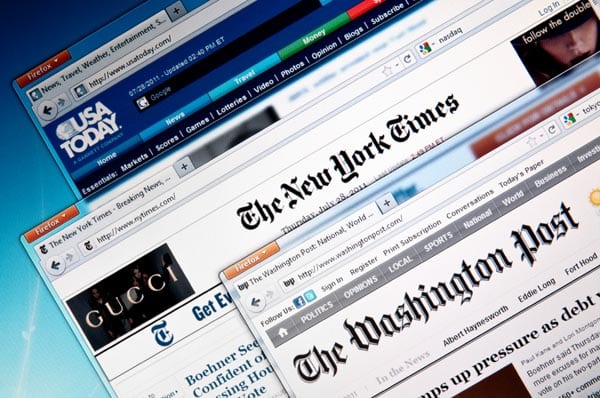How stnews.live Excels in Multimedia Storytelling
The Importance of Fact-Checking worldwide of News Online
The occurrence of misinformation in today's on-line news landscape has gotten to disconcerting degrees. Fact-checking companies play a vital duty in neutralizing this pattern. They confirm claims and improve the credibility of journalism. The effectiveness of these organizations usually pivots on their techniques and public assumption. As audiences navigate this intricate atmosphere, the effects of their findings may shape the future of news intake and trust fund. What does this mean for the honesty of info progressing?

The Rise of False Information in the Digital Age
Exactly how has the arrival of electronic modern technology added to the spread of false information? The fast growth of the web and social media systems has actually helped with the circulation of information at an extraordinary rate. Individuals can share articles, video clips, and opinions with a mere click, commonly without validating the content's accuracy. Formulas focus on spectacular or mentally charged material, leading to a spreading of misleading narratives that record interest.
Furthermore, the privacy paid for by electronic platforms permits people to spread out incorrect details without accountability (stnews.live). Misinformation thrives in echo chambers, where customers are exposed largely to point of views that strengthen their ideas, even more setting frauds. The saturation of info can overwhelm individuals, making it testing to discern legitimate sources from unstable ones. As a result, misinformation has become a prevalent issue in the digital landscape, impacting popular opinion and rely on legitimate news resources
The Role of Fact-Checking Organizations
Fact-checking companies play a necessary function in boosting the credibility of journalism by validating claims made in report. Their initiatives are vital in combating misinformation, guaranteeing that precise info dominates in the digital landscape. By holding media electrical outlets answerable, these organizations add considerably to notified public discourse.
Enhancing Credibility in Journalism
While false information proliferates in the electronic age, fact-checking organizations play an important function in enhancing the credibility of journalism. These companies thoroughly confirm claims made in newspaper article, public declarations, and social networks posts, making sure that info distributed to the general public is precise and credible. By offering independent evaluations, they act as a crucial resource for journalists, assisting them keep high criteria of stability. In addition, their efforts advertise transparency in media, promoting public depend on. As target markets become progressively critical, the visibility of reliable fact-checking entities can identify dependable news sources from those that might spread falsehoods. Inevitably, the dedication of fact-checking organizations to maintain truthfulness is essential for the health and wellness of democratic discourse.
Combating Misinformation Successfully
As misinformation proceeds to spread swiftly across digital platforms, the role of fact-checking companies ends up being significantly vital in the fight for exact information. These companies offer as watchdogs, inspecting claims made by public numbers and media outlets to ensure accountability. By using strenuous study techniques and professional evaluation, they confirm realities and clarify deceptive narratives. Their findings are disseminated with numerous networks, enlightening the general public and fostering critical reasoning. In addition, partnerships with social networks platforms boost their reach, permitting timely flagging of false info. As digital proficiency expands, the impact of fact-checking companies is essential in empowering audiences to recognize fact from falsehood, inevitably adding to an extra informed society.
Just How Misinformation Affects Public Understanding
Misinformation substantially weakens depend on in media, leading target markets to question the trustworthiness of news sources. As a result, people commonly are attracted towards outlets that reinforce their present ideas, adding to the polarization of viewpoints. This dynamic develops a fragmented info landscape, where shared comprehending comes to be significantly tough to accomplish.
Count on Media

Rely on media has become significantly vulnerable in the digital age, where the quick spread of false details can alter public assumption. As false information multiplies across social networks and online systems, audiences commonly discover it testing to discern qualified sources from unreliable ones. This uncertainty promotes suspicion, leading several people to question the intentions behind news coverage. Trust fund in established media outlets has lessened, as consumers progressively transform to different resources that may do not have extensive editorial criteria. This disintegration of count on not just influences individual beliefs however additionally threatens the cumulative ability to participate in notified discussions. Inevitably, the integrity of journalism is at stake, highlighting the critical from this source requirement for efficient fact-checking to restore confidence in the media landscape.

Polarization of Opinions
The raising suspicion toward conventional media has contributed to an expanding polarization of point of views amongst the public. Misinformation, typically distributed with social media and on the internet systems, plays a significant function fit distinctive ideological separates. People regularly seek info that straightens with their pre-existing ideas, strengthening their point of views while rejecting opposing point of views. This echo chamber result escalates divisions, causing a fragmented public discourse where consensus ends up being progressively elusive. Furthermore, sensationalized stories grow in this atmosphere, additionally skewing public understanding and fostering mistrust in credible sources. As polarization rises, the necessity for reliable fact-checking ends up being critical to connect spaces and advertise notified conversations, ultimately guaranteeing a much more natural society with the ability of maneuvering intricate problems.
Techniques for Efficient Fact-Checking
Effective fact-checking counts on a methodical strategy that includes thorough research, confirmation of sources, and critical analysis of cases. A foundational method is cross-referencing info from multiple trustworthy sources to confirm its accuracy. Fact-checkers typically make use of specialized databases and archives to trace the beginning of certain statements, making certain that the reported information lines up with recorded evidence.
Another necessary technique involves scrutinizing the context in which claims are presented. Deceptive information can develop from out-of-context quotations or selective data usage. By taking a look at the wider narrative, fact-checkers can recognize possible predispositions or false impressions.
Engaging with experts in relevant fields can supply quality and understanding that boosts the fact-checking procedure. This collaboration can discover subtleties that laypeople may ignore - stnews.live. Inevitably, a self-displined technique combining these techniques fosters a more informed public, improving the integrity of info distributed in the digital age
The Impact of Social Media on News Intake
How has social media changed the means people consume news? The emergence of platforms like Facebook, Twitter, and Instagram has notably transformed news intake patterns. News is currently shared swiftly, enabling individuals to access real-time updates and engage with web content via sort, shares, and comments. This immediacy has cultivated a preference for bite-sized information, typically at the expense of extensive evaluation.
In addition, social media allows individualized news feeds, where formulas curate web content based upon user preferences, creating resemble chambers that may restrict direct exposure to varied point of views. The function of conventional news electrical outlets has actually diminished as people significantly count on peer suggestions and trending topics. Subsequently, the integrity of info is usually compromised, as sensationalism can outweigh factual reporting. Generally, social media has reshaped news usage, stressing speed and personalization while testing the standards of journalistic integrity.
Encouraging Target Markets to Determine Trusted Resources

In addition, taking a look at the authorship and business background of newspaper article can reveal prospective predispositions. Cross-referencing details throughout several trustworthy outlets additionally enhances the confirmation process. Using digital devices, such as web browser extensions that rank the reliability of websites, can additionally help in identifying trustworthy information. By actively engaging with these resources and cultivating an essential frame of mind, audiences can much better outfit themselves to determine reliable news resources, ultimately promoting an extra informed society amidst the complexities of today's media setting.
The Future of Journalism and Fact-Checking
As the media landscape develops, the future of journalism and fact-checking encounters both challenges and possibilities. The rise of electronic systems has equalized information circulation, permitting diverse voices to arise. This has actually also led to the proliferation of false information, necessitating robust fact-checking devices. Reporters will progressively count on technology, consisting of AI devices, to verify truths quickly and successfully.
Collaboration between news organizations and fact-checking entities is prepared for to reinforce reputation and transparency. Target market involvement will play a crucial duty, as notified visitors come to be substantial companions in recognizing credible material.
The demand for liability and accuracy is likely to grow, pushing reporters to support high criteria in their reporting. Inevitably, the future of journalism might rest on you can try this out its capacity to adapt to technical advancements while maintaining journalistic honesty, making sure that fact-checking stays a foundation of qualified news.
Regularly Asked Concerns
Exactly How Can I Report Misinformation I Experience Online?
To report misinformation encountered online, people can make use of platform-specific reporting devices, provide clear proof, and share the information with fact-checking companies. Involving with community conversations can additionally assist raise recognition concerning the misinformation.
What Are Common Indicators of False Information in News Articles?
Common indicators of misinformation in news short articles consist of marvelous headlines, lack of qualified resources, psychological language, irregular realities, and absence of writer credentials. Viewers must seriously evaluate material for these indicators to determine precision.
Exactly How Do Fact-Checkers Validate Resources?
Fact-checkers validate resources by cross-referencing info with reputable data sources, speaking with specialists, and analyzing the initial context of claims. They additionally analyze the reliability of the sources, making sure precise and credible information for public usage.
What Lawful Actions Can Be Taken Against False information?
Lawful activities against false information might include libel lawsuits, cease-and-desist orders, and regulative penalties. Victims can look for remedy with civil courts, while some territories enforce penalties or sanctions on platforms distributing incorrect info.
Are There Apps for Fact-Checking News On-The-Go?
Various apps exist for fact-checking news on-the-go, including Snopes, FactCheck.org, and PolitiFact. These applications assist individuals confirm cases swiftly, advertising notified decision-making and fostering a more discerning technique to consuming news in real-time.